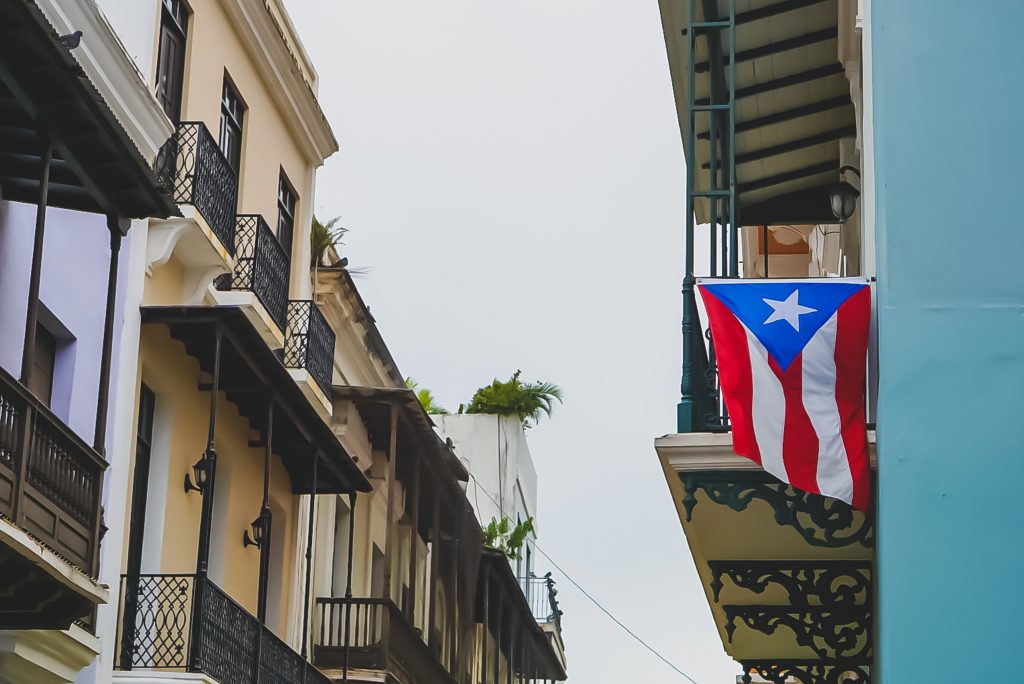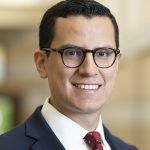The relationship between inter-country integration and economic crises depends on how integration is implemented. Economic integration, understood as a high degree of ease in the flows of goods, information, people, and capital between regions or countries, is viewed as having positive effects for economic growth, but it also appears to exacerbate intra-country inequality and to spawn financial market volatility (Beckfield 2019; Firebaugh, 1994; Grabel 2003).
Political integration refers to the lowering of legal barriers between regions, and to policies, rules and governance structures that bind actors under a common jurisdictional canopy (Fligstein and Stone Sweet 2002). Political integration plausibly provides needed resources, and institutionalizes forms of governance that help contain the length and severity of crises. Puerto Rico is highly integrated economically and politically with the United States, yet the crises it has experienced illuminate issues beneath the surface in conventional analyses of economic and political integration.
In Puerto Rico, the COVID-19 pandemic has capped a horrific 15-year period.
Over the last fifteen years Puerto Rico has experienced a government shutdown (2006); a steep economic contraction worsened by the Great Recession (2007-2012). The island defaulted on $72 billion in public obligations (2015) that exclude another $50 billion in unfunded pension liabilities; endured a category 4 hurricane (2017) with untold social and economic effects, including the migration of thousands to the US mainland; experienced earthquake swarms (2019-20); and weathered political protests (2019) unlike any seen in the island since the 1930s. The COVID-19 pandemic has capped a horrific 15-year period.
To manage Puerto Rico’s fiscal crisis, Congress created the Financial Oversight and Management Board to oversee the island’s public finances. The board has authority over public budgets; it holds virtual veto power over the government payroll, the University of Puerto Rico’s budget, the renegotiation of all public debt, and disbursements related to common public expenses such as road maintenance, pension payments, and K-12 education. Under its mandate the board has control over all budgetary allocations related to the island’s government. This extends to all laws that might impinge on the government’s financial situation. In exerting this control, the board renders Puerto Ricans powerless in all manner of issues related to their own governance. Such constraints stand in stark contrast to the island’s experience during the last half of the twentieth century.
A post-war, pro-development community
From the 1950s to the late 1970s Puerto Rico underwent a social and economic transformation of great significance, transitioning rapidly from a society rooted in an enclave agricultural economy, to one primarily anchored in manufacturing and commerce. Educational attainment among adults rose from an average of 3.7 years in 1950 to 8.7 in 1980, standards of living more than doubled, and the quality of occupational opportunities shifted from a predominance of low-skill jobs to one with greater complexity and greater skill requirements (Ladd and Rivera-Batiz, 2006; Toro, 2014). Politically, Puerto Rico enacted a constitution that granted full home rule in 1952, featuring an elected governor with considerable discretionary control over agencies, the appointment of public officials, and importantly, albeit within limits, discretionary power to grant tax exemptions and tax credits without legislative input.
These social and economic transformations were possible because of the presence of a hegemonic community comprised of the US federal government, US business and manufacturing interests, and a coalition of social classes led by the Popular Democratic Party of Puerto Rico, originally a center-left populist party. These various stakeholders supported a pro-development agenda for Puerto Rico, and were able to obtain popular consent for its key tenets in Puerto Rico itself.
Puerto Ricans have been rendered powerless in all manner of issues related to their own governance.
The presence of this hegemonic community was fundamental for mitigating the economic crises experienced by Puerto Rico in the decades following the establishment of home rule. The proposals implemented were compromise solutions that met the contending interests at the heart of this hegemonic community. For example, the hegemonic community provided a sufficiently unified call for extending and augmenting special tax incentives for US corporations located in Puerto Rico, and for extending to Puerto Rico Federal anti-poverty programs such as Food Stamps (circa 1975), after the crises of production that resulted from the first oil shock in the early 1970s, as well as after the crisis generated by the recessions of the early 1980s (Cabán, 1989; Ruiz, 1976).
Other programs such as the Caribbean Basin Initiative positioned Puerto Rico’s economy attractively vis-à-vis US investment and linked such investments to broader Caribbean development strategies (Gautier-Mayoral, 1990). While imperfect, these policies contained some of the worst consequences of economic downturns, and the negative externalities of the development model adopted by Puerto Rico. The proposed solutions and prescriptions emerged in coordination with Puerto Rico’s economic and political elites (Dietz, 2003). Over time, however, the conditions that generated a shared view unraveled, and the incentives for coordination became weaker or disappeared.
Unraveling leadership, benign neglect, and top-down solutions
The unraveling of hegemonic leadership, with no new block of interests to replace it, is linked to Puerto Rico’s current series of crises. The absence of a new US-Puerto Rico community of shared interests means that no new program with broad appeal for social and economic prosperity has been adopted to counter the economic stagnation and decline that has unfolded in the last fifteen years (Toro, 2007). As globalization has proceeded, Puerto Rico has lost its privileged standing as a domestic jurisdiction attractive for US-based investment. Moreover, the US government’s interest in presenting Puerto Rico as a shining star vis-à-vis Cuba and other decidedly less pro-capitalist paths out of underdevelopment had become less relevant by the late 1980s. Over time, and fundamental to this account, is the federal government’s slow but ongoing loss of interest in matters related to Puerto Rico. This has led to a sort of benign neglect coinciding with the broader shift in Puerto Rico’s location in the world economy and amplifying the longevity and magnitude of Puerto Rico’s economic stagnation.
A configuration of shared interests is a necessary precondition for successful human flourishing under formal economic and political integration.
Just as the COVID-19 pandemic has revealed precarious economic conditions at the heart of contemporary social and economic structures across the world, the severity of Hurricane Maria revealed and worsened the dire social and economic conditions in Puerto Rico. As a result, Puerto Rico, which at the time of the hurricane had already declared its debt unpayable, underwent a staggering hit to its economy. Estimated damages hover around $90 billion. This is approximately equivalent to one year’s worth of the island’s Gross Domestic Product. But even this number hardly captures the impact of collective emotional distress, the refugee crisis, or the rending of the social fabric as a result of errors and missteps by both local and federal officials in their handling of the aftermath.
What can we learn from history?
The experience of Puerto Rico suggests that the configuration of shared interests is a necessary precondition for successful human flourishing under formal economic and political integration. Puerto Rico’s relationship to the United States suggests some general lessons. First, subordinate regions cannot be expected to “go it alone” in the face of the triple-threat of economic, environmental, and health crises. Puerto Rico may be a canary in the coal mine for how these threats can affect subnational jurisdictions in the United States. Addressing these issues might require a broad reconceptualization of domestic social policy, which tends to be focused on helping individuals and households far more than communities.
Second, economic conditions leading to unsustainable indebtedness have to be addressed earlier. In the presence of deep indebtedness, debt relief may be a needed part of the tool kit for reigniting growth. In the specific case of Puerto Rico, the top-down institutionalization of a fiscal control board may have unintendedly extended economic pain, and prevented more active accountability. While many experts tout the need for a fiscal control board, its focus is narrowly targeted at the solvency of Puerto Rico’s government. But the fiscal crisis of the island’s government is a symptom of the absence of consensus around an alternative strategy for development. Arriving at a consensus will need the active involvement of Puerto Ricans in the formulation of alternatives, a principle consistent with Catholic social tradition, which views participation as a necessary precondition for the pursuit of the common good. This might require a new congressional mechanism to address Puerto Rico’s debt and stagnation. The success of its implementation will depend on greater participation by Puerto Ricans themselves in the formulation of possible solutions to the current crisis, and in crafting viable alternative pathways for future social and economic development.
Harold J. Toro is an adjunct assistant teaching professor in the Keough School of Global Affairs.
This article is part of a series of blog posts published by the Keough School of Global Affairs. Dignity and Development provides in-depth analysis of global challenges through the lens of integral human development.
Photo: Tatiana Rodriguez for Unsplash.



